The Greek word for philosophy (philosophia) translates to the “love for wisdom” in English. The discipline dates back to ancient times with some of the greatest philosophers being Socrates, Plato, and Aristotle. But there are some modern-day philosophical thinkers who have had their contributions recognized as well. Below is a chronological list of some of the most famous philosophers of all time and why they were important to future generations.
Philosophers of Antiquity
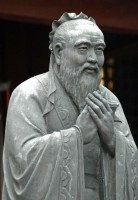 |
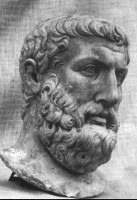 |
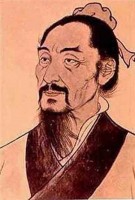 |
| Confucius (551 BC-479 BC) Nationality: Chinese Known for: Developed the system known as Confucianism The philosophy of Confucius focused on self improvement, the morality of governing a people, justice and personal relationships with others. His collection of sayings, called analects,are well-known and mimicked in fortune cookies, although these are typically not sayings attributed to Confucius himself. |
Parmenides (c.540 BC-?) Nationality: Greek Known for: Founder of the Eleatic school of philosophy Wrote a philosophical poem entitled On Nature in which he discusses two ideals: The way of truth and the way of opinion. Parmenides believed the latter was inferior because it was not reliable. He theorized that the world is non-changing and when a person sees something change, it is merely an illusion. |
Mozi (c.470 BC- c.391 BC) Nationality: Chinese Known for: Father of Mohism Mohism was one of the four major schools of thought during China’s ancient Spring and Autumn Period. Some of the concepts in Mohism include impartial care, a rejection of fatalism, and a denial of extravagant funerals and the arts because these things take away from tending to the crops and other productive chores. |
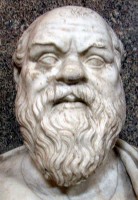 |
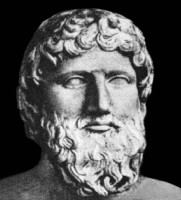 |
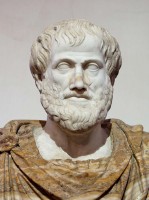 |
| Socrates (c.469 BC-c.399 BC) Nationality: Greek Known for: One of the founders of Western Philosophy Socrates created the Socratic Method which is commonly used for determining the ethics of an issue. With this method, a problem is broken up into parts with various questions which help a person determine their underlying beliefs. He also believed that people should ideally live to better themselves rather than seek material wealth. |
Plato (c.428 BC-c.348 BC) Nationality: Greek Known for: Theory of the Tripartite Soul As one of the founders of Western thought, Plato helped shape ideas about government and societies throughout the centuries. His The Republic talked about justice and the state’s role in society and in the lives of people. He also believed in the immortality of the soul. |
Aristotle (384 BC-322 BC) Nationality: Greek Known for: Wrote the Nicomachean Ethics about practical ethics One of Aristotle’s recurring themes in his philosophical ideas is teleology, or the belief that the best way to understand something is to understand the purpose that it serves. He is also credited with creating the field of formal logic and the scientific method. |
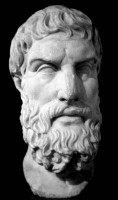 |
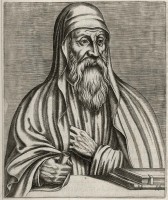 |
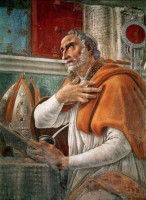 |
| Epicurus (341 BC-270 BC) Nationality: Greek Known for: Founder of the Epicureanism school of philosophy Epicurus believed that happiness revolved around three main things in life: positive relationships with others, individual freedom, and an analytical reflection on our lives. None of Epicurus’ written works survived, but his ideas were passed down through his students. |
Origen (c.185-c. 253) Nationality: Egyptian Known for: Argued for the existence of a Trinity in Christian belief Origen was a theology philosopher who strictly believed what the Bible had to say. His writings, such as On First Principles and his various commentaries on books of the Bible show him to be a defender of the Scriptures as he discusses ideas like free will, the restoration of the soul and more. |
Saint Augustine of Hippo (354-430) Nationality: North African Known for: First Christian theologian to connect Plato’s ideas to church doctrine In his writings, Saint Augustine of Hippo discussed many issues of the Christian faith. In his discourse on the issue of free will, he argued that humans have personal responsibility and God’s infinite wisdom has no bearing on our actions. For the original sin argument, he believed there was no evil force, but evil merely exists in the absence of good. |
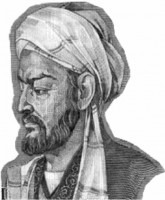 |
 |
|
| Avicenna (c.980-1037) Nationality: Persian Known for: Helped bring the works and ideas of Aristotle to Europe Avicenna was an early Islamic philosopher who wrote extensively on the topics of ethics, metaphysics, and logic. Around the 12th century, he became the leader in philosophical thought in the Middle East. His ideas came to be known as Avicennism. |
Thomas Aquinas (1225-1274) Nationality: Italian Known for: Fathered the school of thought entitled Thomism Aquinas theorized that it was possible to prove the existence of God through five proofs. Some of these proofs include motion, regression of causes to the original cause, a descending order of perfection and othres. He is credited with helping bridge the gap between faith and reason. |
Philosophers of the 1500s
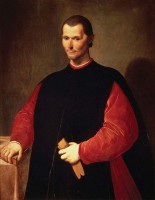 |
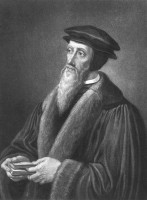 |
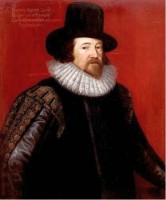 |
| Niccolo Machiavelli (1469-1527) Nationality: Italian Known for: Wrote The Prince, a book on how a ruler can retain control The term “machiavellianism” is named after Machiavelli and his philosophy, which can be summed up by the phrase “the end justifies the means.” He advocated for rulers to have the characteristics of ruthlessness and control rather than justice and compassion. |
John Calvin (1509-1564) Nationality: French Known for: Developed Calvinism, a major branch of Christian theology One of the major tenets of Calvin’s philosophy concerning Christianity is the concept of predestination. This term refers to Calvin’s belief that God has already chosen those who will go to Heaven or Hell regardless of what they do during their lives on earth. |
Francis Bacon (1561-1626) Nationality: English Known for: The Father of Empiricism Bacon’s philosophy was that it was nearly impossible for most people to see the world as it really is because they cannot set aside their prejudices and their preconceptions. He said any obstacles that distract from seeing the world objectively were idols. His idea can be summarized by the phrase “everything is not as it appears.” |
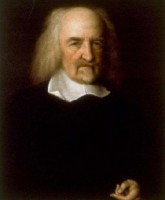 |
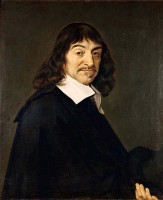 |
|
| Thomas Hobbes (1588-1679) Nationality: English Known for: Wrote Leviathan Hobbes’ book Leviathan was one of the more influential writings concerning the social contract theory and Western philosophy. He was a strong advocate of the rights of the individual and the idea that everybody was equal. |
René Descartes (1596-1650) Nationality: French Known for: The Father of Modern Philosophy Known for his statement, “I think, therefore I am,” Descartes questioned everything from the existence of God to his own existence. He argued for God’s existence and he created the theory of the duality of the mind and body. He also defended the idea of free will. |
Philosophers of the 1600s
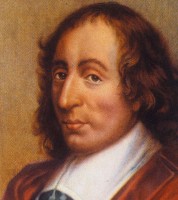 |
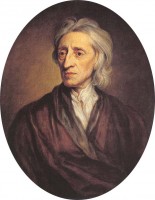 |
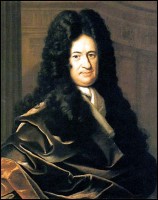 |
| Blaise Pascal (1623-1662) Nationality: French Known for: Pascal’s Wager One of the most well-known contributions to philosophy by Blaise Pascal was Pascal’s Wager. In arguing for or against the existence of God, this idea stated that it was in one’s best self-interest to believe in God because it was “safe.” If He did not exist, Pascal said, then it would not matter anyways. |
John Locke (1632-1704) Nationality: English Known for: Known as the Father of Liberalism Locke was an influential philosopher whose writings helped spark the American Revolution. Some of his ideas were even implemented in the Declaration of Independence. He also theorized the “blank slate” idea, which states that everybody’s mind is clear when they are born and their experiences through life shape their belief systems and attitudes. |
Gottfried Leibniz (1646-1716) Nationality: German Known for: Believed life was made up of a series of monads Leibnix had a philosophy that God created the universe and therefore, He has all the answers. He believed that humans could not figure out the puzzle to the universe and we are only allowed to see a small part of the big picture. |
Philosophers of the 1700s
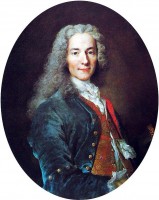 |
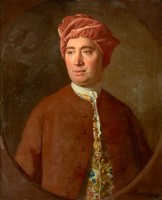 |
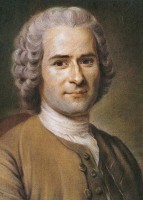 |
| Voltaire (1694-1778) Nationality: French Known for: Writings on social reform that led to the French and American Revolutions This author of the Dictionnaire Philosophique was critical of the Roman Catholic Church and how it oppressed people’s freedoms. He used his writings, such as the novella Candide and others, to advocate for freedom and criticize the institutions with which he disagreed. |
David Hume (1711-1776) Nationality: Scottish Known for: Dialogue Concerning Natural Religion and Natural History of Religion . Hume was of the empiricist school of thought, meaning that his ideals focused mainly on things in the world that could be directly observed and experienced. Following from this belief, many consider him to be the one of the first atheists. |
Jean-Jacques Rousseau (1712-1778) Nationality: Genevan Known for: Wrote A Discourse on the Arts and Sciences Created The Social Contract which was an outline for a form of government. In this work, he discussed how men are born free, but they are bound by various chains that society places on them. He also felt that human nature was innately good and only gets corrupted by society. |
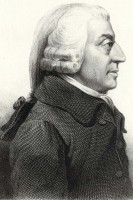 |
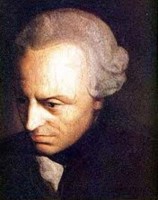 |
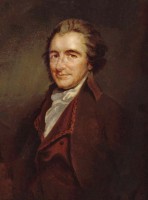 |
| Adam Smith (1723-1790) Nationality: Scottish Known for: The Father of Economics Smith wrote The Wealth of the Nations, which advocated minimal government interference in a nation’s economy. Because of this book and others, Smith is known as the founder of free-market economics. |
Immanuel Kant (1724-1804) Nationality: German Known for: Published Critique of Pure Reason Kant believed that all of our experiences are filtered through our rational mind. As a result, there is a difference between what we believe and how things really are. He also formed the theory of the Moral Law, which stated that there is a moral duty that people must carry out in all cases and without exception. |
Thomas Paine (1737-1809) Nationality: English-American Known for: Wrote Common Sense Paine was an American patriot who wrote pamphlets that helped inspire the American Revolution. One of his well-known works – The Age of Reason – was a pamphlet that challenged the legitimacy of the Bible and criticized the Christian Church for its attempts to obtain power. |
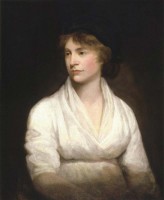 |
||
| Mary Wollstonecraft (1759-1797) Nationality: British Known for: Wrote A Vindication of the Rights of Women As one of the predecessors to the feminist movement, Wollstonecraft argue for the equality between men and women. She believed the only thing that held women back from being on the same level as men was their lack of education, which was difficult to receive during her time. |
Philosophers of the 1800s
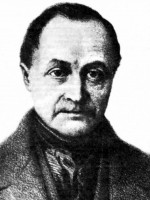 |
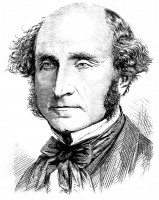 |
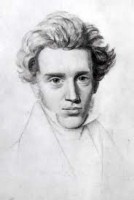 |
| Auguste Comte (1798-1857) Nationality: French Known for: The Father of Modern Sociology Developed the theory of positive philosophy to help relieve some of the negative feelings following the French Revolution. He also wanted to use the same techniques used by scientists to explore and study human experiences and affairs. |
John Stuart Mill (1806-1873) Nationality: English Known for: Wrote System of Logic Mills believed in a free market economic society. He advocated a utilitarian society in which everyone was equal. As such, he believed in such things as an inheritance tax and other types of taxes so some people would not get an unfair advantage over others. |
Soren Kierkegaard (1813-1855) Nationality: Danish Known for: The Father of Existentialism Much of Kierkegaard’s philosophical works centered around religion and the Bible. He felt that organized religion made it more difficult for an individual to have a personal relationship with God. He also theorized that humans had three main problems to overcome – boredom, despair, and anxiety. |
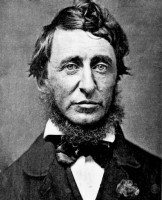 |
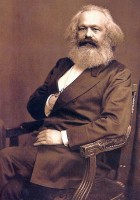 |
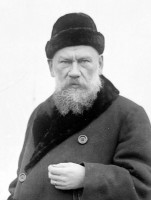 |
| Henry David Thoreau (1817-1862) Nationality: American Known for: Wrote Walden and On Civil Disobedience Walden, which is Thoreau’s most well-known work, is an expression of transcendentalism, or the belief that both nature and people are inherently good. He also wrote an essay entitled Civil Disobedience, which advocated for individual freedom from the oppression of government forces. |
Karl Marx (1818-1883) Nationality: German Known for: Wrote The Communist Manifesto and Das Kapital His ideas and publications helped lay the groundwork for modern-day socialism and communism. His ideas, which came to be known as Marxism, addressed the issue of class systems throughout society and how the wealthy class rules over the lower classes. |
Leo Tolstoy (1828-1910) Nationality: Russian Known for: Wrote the novel War and Peace At age 50, Tolstoy went through a spiritual transformation. Following this period, he theorized that a society should base itself on the principles of Christianity. According to his new philosophy, social Christianity should be the norm. He believed war or any type of killing was immoral and people should resist evil. |
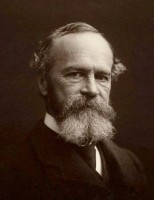 |
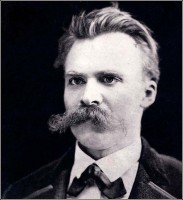 |
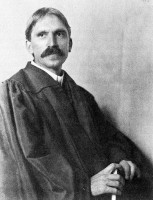 |
| William James (1842-1910) Nationality: American Known for: Father of Modern Pragmatism As a trained physician and psychologist, James focused his philosphical works on the mind and human emotion. Much of his work concerns the philosophy of religion and how it affects a person’s way of thinking. Some of his writings include The Will to Believe and The Meaning of Truth. |
Friedrich Nietzsche (1844-1900) Nationality: German Known for: Nihilism and “God is dead” statement Publications like Thus Spoke Zarathustra and Beyond Good and Evil have made Nietzsche one of the more controversial philosophers. His Eternal Return theory stated that the universe recurs and will continue to recur in a similar form an infinite number of times. |
John Dewey (1859-1952) Nationality: American Known for: Helped develop the pragmatist philosophy of the early 20th century As one of the most famous teachers in modern history, Dewey believed that schooling was both restrictive and too long to be effective. His philosophy of pragmatism led him to believe that it would be more useful for children to get real-world experience rather than sitting in a schoolroom. |
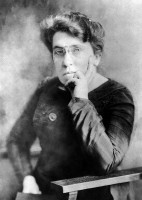 |
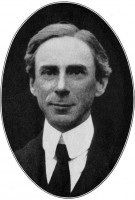 |
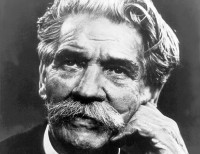 |
| Emma Goldman (1869-1940) Nationality: Russian Known for: Most prominent anarchist preceding WWI Often referred to as “Red Emma,” Goldman moved to the United States in the mid-1880s and gave numerous lectures on the benefits of anarchsim. She began a publication entitled Mother Earth in which her and other anarchist supporters discussed the philosophies of anarchism. |
Bertrand Russell (1872-1970) Nationality: British Known for: Co-founder of analytic philosophy. Russell wrote an nearly every aspect of philosophy, including language, mathematics and religion. His work Why I am Not a Christian is one of his best known publications. Others include Introduction to Mathematical Philosophy, The Problems of Philosophy and more. |
Albert Schweitzer (1875-1965) Nationality: German Known for: Won Nobel Peace Prize in 1952 for “Reverence of Life” Theological philosopher who published The Quest of the Historical Jesus and challenged the popular notion that people had of Jesus. In his work The Philosophy of Civilization, he also called for a return to having a reverence for life, an idea that some philosophers of his day were abandoning. |
Philosophers of the 1900s
 |
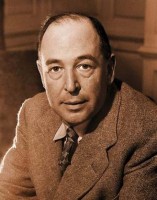 |
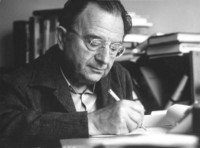 |
| Ludwig Wittgenstein (1889-1951) Nationality: Austrian-British Known for: Wrote Philosophical Investigations Wittgenstein’s Philosophical Investigations is considered by many to be one of the most important works of the 20th century philosophy. It focused on linguistics and the way it is used to form thoughts. |
C. S. Lewis (1898-1963) Nationality: Irish Known for: Wrote several books regarding Christian apologetics. Lewis is known for several books and essays, but his works regarding Christian apologetics are among some of his best known writings. Publications like Mere Christianity, The Problem of Pain, and The Screwtape Letters have helped provide a rational discussion for the Christian faith. |
Erich Fromm (1900-1980) Nationality: German Known for: Wrote Escape from Freedom and Man for Himself Fromm was a trained psychologist who theorized that humans have eight basic needs to survive, including a sense of identity, relationships with other people, and a feeling of belongingness, among others. He is also known for his criticism of the philosophies of Sigmund Freud. |
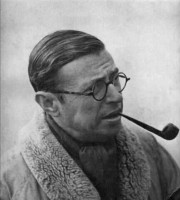 |
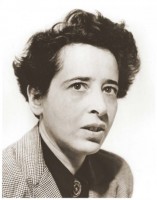 |
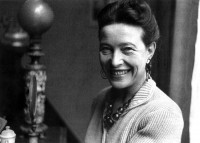 |
| Jean-Paul Sartre(1905-1980) Nationality: French Known for: Advocate for Marxism and the idea of existentialism Sartre theorized that man is doomed to be free. He argued that there was no ultimate creator because if there was, every human would have a purpose from birth. Rather, he said, they exist and then seek out a purpose. His most famous work – Nausea – serves as an existentialist manifesto. |
Hannah Arendt (1906-1975) Nationality: German-American Known for: Political philosopher who coined the phrase, “the banality of evil” As a writer of philosophical works and lecturer on the topic, Arendt is one of the better known female philosophers of her time. Some of her works include The Life of the Mind, Some Questions on Moral Philosophy, and The Human Condition, which is considered her most influential work. |
Simone de Beauvoir (1908-1986) Nationality: French Known for: Existentialist philosopher who helped develop the modern feminist movement De Beauvoir wrote several books and essays that laid the groundwork for the feminist movement. The Second Sex advocated the notion of existential feminism, which stated that is not born as a female, but rather they become female throughout their life. |
 |
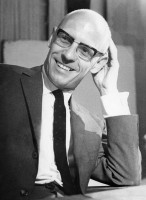 |
|
| Albert Camus (1913-1960) Nationality: French Known for: Furthered the idea of an absurdist philosophy Author of The Stranger and The Plague, Camus was a philosophical writer as well. His work The Myth of Sisyphus helped further the argument of an absurdist philosophy, which refers to the human’s desire to find meaning to life although finding it is impossible for humans. |
Michel Foucault (1926-1984) Nationality: French Known for: Wrote Discipline and Punish Much of Foucault’s work centered around the various institutions in society. For one thing, his work Discipline and Punish criticized the penal systems throughout the centuries. His philosophy was that prisons and torture do nothing to rehabilitate criminals. He had similar criticisms of mental institutions. |